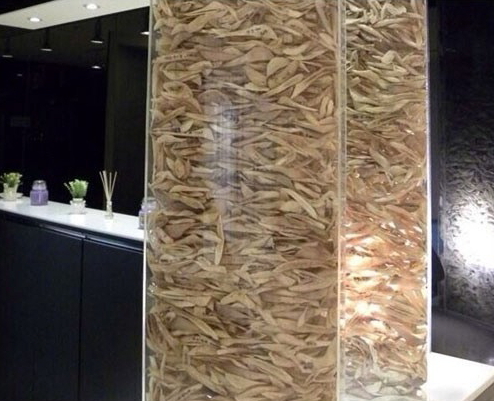 |
Human jawbones are displayed at Oin Plastic Surgery in Seoul. |
A plastic surgery clinic overdid a marketing job when it decided to display human remains in its lobby, touching off a wave of criticism on social media against the booming cosmetic surgery industry in South Korea.
Oin Plastic Surgery, a hospital located in the affluent Gangnam district in southern Seoul, had installed two transparent towers filled with the remains of human jawbones, which were left over from jaw surgeries according to the clinic website.
“We exhibit the bones cut from our surgeries so that you (patients) can see for yourself,” read a caption from the hospital’s homepage before the picture was pulled down.
The Gangnam-gu office fined Oin Plastic Surgery 3 million won ($2,800) after the picture of the so-called “jawbone towers” sparked an uproar on Twitter, Facebook and local blogs. Government officials called the levy an “administrative measure” because there was no proof the display had violated medical hygiene laws.
“The bones themselves do not seem to cause any environmental problems at the moment, so we can’t contact the police about this matter as of yet,” said an official at the Gangnam-gu office. “We will resort to exacting fines for now.”
Human bones are considered medical waste according to related laws, and must be “incinerated or disposed of in similar methods.”
Oin Plastic Surgery declined to comment.
Korean netizens expressed mixed views on the so-called “human jawbone towers” in a nation known for its advanced level of plastic surgery, which is drawing foreign medical tourists who want to reconfigure their appearances based on Hallyu stars.
“Wow. Future archaeologists might find these bones and think there was a mass murder or the like,” said one Twitter user, while another user called the bones an “overexcited marketing” scheme.
South Korea’s high-flying cosmetic surgery industry, which leads the world in per-capita plastic procedures at 0.65 operations per 1,000 people according to a much-cited statistic from the International Society of Aesthetic Plastic Surgery, has been raising eyebrows lately.
Top celebrities were accused last year of illegally self-administering propofol, a psychotropic drug that is used as an anesthetic, after they became addicted to the substance while receiving doses during cosmetic procedures.
A National Assembly document disclosed during last year’s parliamentary audits criticized plastic surgeons for their lack of concern for patient safety, citing that of the 1,091 registered cosmetic surgery clinics, less than 24 percent had installed emergency medical equipment.
By Jeong Hunny (
hj257@heraldcorp.com)





![[Exclusive] Hyundai Mobis eyes closer ties with BYD](http://res.heraldm.com/phpwas/restmb_idxmake.php?idx=644&simg=/content/image/2024/11/25/20241125050044_0.jpg)

![[Herald Review] 'Gangnam B-Side' combines social realism with masterful suspense, performance](http://res.heraldm.com/phpwas/restmb_idxmake.php?idx=644&simg=/content/image/2024/11/25/20241125050072_0.jpg)
